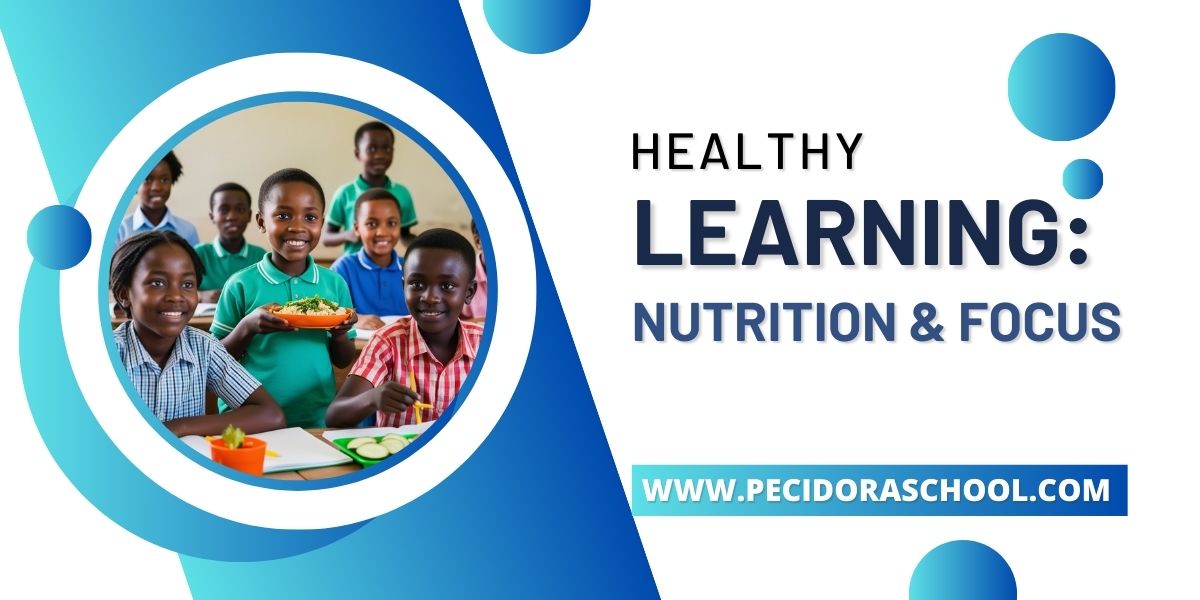Boosting Brain Power: Healthy Habits for a Successful School Year
Published: 08 Oct 2024

Introduction
As the school year begins, it’s essential for students to adopt healthy habits that enhance their cognitive abilities and overall well-being. At Pecidora International School, we believe that a healthy mind is key to academic success. This webpage outlines practical strategies that students can implement to boost their brain power and create a successful school year.
1. Nutrition: Fueling the Brain
Eat Smart for Success:A balanced diet is crucial for maintaining energy levels and cognitive function. Here are some dietary tips to support brain health:
- Breakfast Matters: Start the day with a nutritious breakfast that includes whole grains, fruits, and protein to provide energy and improve concentration.
- Stay Hydrated: Drinking enough water is vital for optimal brain function. Encourage students to keep a water bottle handy throughout the day.
- Brain-Boosting Foods: Incorporate foods rich in antioxidants, healthy fats, vitamins, and minerals, such as:
- Fatty Fish: Omega-3 fatty acids in fish like salmon support brain health.
- Leafy Greens: Spinach and kale are packed with vitamins that improve cognitive function.
- Berries: Antioxidants in berries help protect the brain from oxidative stress.
2. Physical Activity: Moving for Mindfulness
Exercise for Enhanced Learning: Regular physical activity is linked to improved concentration, memory, and overall mental health. Encourage students to incorporate the following:
- Daily Exercise: Aim for at least 30 minutes of physical activity each day, whether it’s walking, biking, dancing, or participating in sports.
- Active Breaks: Encourage short breaks during study sessions for stretching or quick exercises to rejuvenate the mind and body.
- Mind-Body Practices: Activities such as yoga or tai chi promote relaxation and mental clarity, enhancing focus during academic tasks.
3. Sleep: Resting for Resilience
Prioritize Quality Sleep: Adequate sleep is essential for memory consolidation and cognitive performance. Here’s how to foster healthy sleep habits:
- Set a Sleep Schedule: Encourage students to go to bed and wake up at the same time every day, even on weekends, to regulate their body clock.
- Create a Relaxing Environment: Ensure the bedroom is dark, quiet, and comfortable to promote restful sleep.
- Limit Screen Time: Encourage a screen-free hour before bedtime to reduce blue light exposure, which can interfere with sleep quality.
4. Mindfulness and Stress Management
Cultivating a Calm Mind: Managing stress and anxiety is crucial for maintaining focus and productivity. Teach students these mindfulness techniques:
- Deep Breathing: Simple breathing exercises can help calm nerves and enhance concentration before exams or presentations.
- Meditation and Mindfulness: Encourage practices that promote mindfulness, such as guided meditation or mindfulness apps, to help students stay present and reduce stress.
- Journaling: Writing about daily experiences and emotions can provide an outlet for feelings and foster self-reflection.
5. Organization and Time Management
Plan for Success: Effective time management and organization skills contribute to reduced stress and increased academic performance. Here are some strategies:
- Use a Planner: Encourage students to keep a planner or digital calendar to track assignments, deadlines, and upcoming tests.
- Prioritize Tasks: Teach students to prioritize tasks based on deadlines and importance, helping them stay focused and organized.
- Set Goals: Help students set achievable short-term and long-term academic goals to provide direction and motivation throughout the school year.
6. Engage with Learning Materials
Active Learning Techniques: Engagement with learning materials enhances retention and understanding. Encourage the following active learning techniques:
- Interactive Learning: Utilize online resources, educational games, and group study sessions to make learning enjoyable and interactive.
- Note-Taking Techniques: Teach effective note-taking methods, such as mind mapping or the Cornell method, to help students organize and retain information.
- Ask Questions: Encourage students to ask questions in class and seek clarification on challenging topics to deepen their understanding.
7. Social Connections and Support
Build a Supportive Network: Strong relationships and social interactions can positively impact a student's mental health and academic success. Encourage students to:
- Join Clubs or Teams: Participation in extracurricular activities fosters friendships and enhances social skills.
- Collaborate with Peers: Group study sessions can provide support and motivation, making learning more enjoyable and effective.
- Communicate with Teachers: Encourage open communication with teachers regarding academic challenges or emotional well-being.
Conclusion: A Holistic Approach to Learning
At Pecidora International School, we are dedicated to nurturing students’ minds and bodies for academic success. By adopting these healthy habits, students can boost their brain power and set themselves up for a successful school year.
Need more tips or resources? Contact our educators or visit Pecidora International School for further support in creating a healthy and productive learning environment at home.
Call to Action
- Join Our Wellness Workshops!
- Explore Our Educational Resources Online!
- Contact Us for Personalized Support!
Back to News Feed
